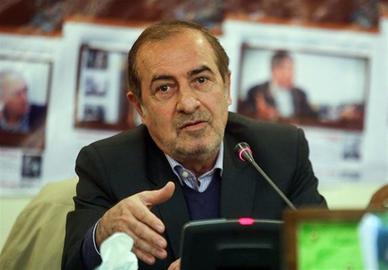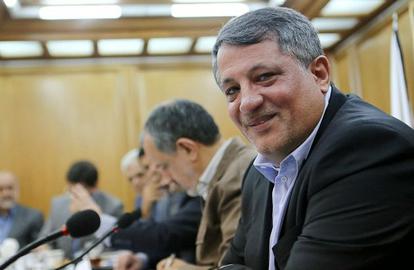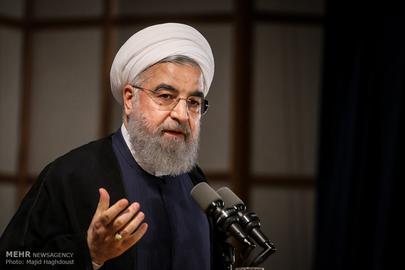Similar to the presidential election, elections for the city and village councils in Iran was a battle between reformists and principlist hardliners. And as with the national election, the hardliners suffered serious defeats, as they did in the February 2016 parliamentary elections.
Before the elections, the Reformist Policy Making High Council drew up a “list of hope,” candidates that were endorsed by former reformist president Mohammad Khatami. The reformists won all 21 seats at Tehran City Council, ending the 15-year dominance of the principlists in local governments across the country.
In the history of Tehran City Council, reformists have held a majority only once, in the first session back in 1999. Since 2002, principlists have controlled the council. But the reformists have always been dogged by infighting, even when they held a majority, leading to the dissolution of the city council, and clearing the way for conservative dominance. This, in turn, gave Tehran its hardliner mayors: Mahmoud Ahmadinejad and Mohammad Bagher Ghalibaf.
Ghalibaf followed the example of Ahmadinejad, and ran for president three times. In his latest bid, he was forced to step aside for the supreme leader’s candidate of choice, Ebrahim Raeesi. With the reformists’ twin victories in the presidential and city council elections, they hope to strip Ghalibaf of his job as mayor. During the presidential campaign, Ghalibaf’s rivals regularly raised the issue of corruption in Tehran municipality, accused both Ghalibaf and his son of corruption and reminded the public of the shady land deals scandal involving city officials, known as the “astronomical properties case.”
Iranians have suggested on social networking sites that the first step for the new city council should be to elect a new mayor. However, Mahmoud Sadeghi, a member of parliament representing Tehran, tweeted that the new council’s first step should be about tackling corruption in city government, and called for the publication of a full report on the matter.
It is an open secret that in recent years, Tehran’s Municipality has been in the service of the Revolutionary Guards and has functioned as an important power center for the principlists. Now, with big losses at the elections, they have lost this power center, as well as their grip on the municipality. It’s expected that after a reformist mayor is selected, Tehran’s city government will reduce its cooperation with entities affiliated with the Revolutionary Guards. With that, the conservatives will lose one of their most important strongholds for influencing cultural and religious institutions in the city.
Hardliner Defeat = A New Cityscape
Conservatives have also lost their power for propaganda in the capital. The city is well known for its controversial billboards, and this was a product of the hardliners’ power in city government. Posters attacking the nuclear deal or promoting bigger families are on their way out. After more than a decade, this propaganda tool will no longer be at the conservatives’ disposal.
But reformists must rise to the challenge of choosing a mayor. Rumors have it that one person being considered is Mohsen Mehr Alizadeh, a vice president and the head of the Physical Education Organization under President Khatami from 2001 to 2005.
Another name that has been bandied about on social networks is that of Mohsen Safaei Farahani, a member of the Central Council of the reformist Islamic Iran Participation Front. A member of parliament from 1999 to 2003, in the aftermath of the disputed 2009 presidential election, he was sentenced to prison for “activities against national security,” “propaganda against the regime” and insulting the officials of the Islamic Republic. Even if the reformists in the city council all agree on him for the next mayor, it seems very unlikely that they will succeed in ushering him into office. Nonetheless, people are still talking about the possibility, on Twitter and elsewhere on social networks.
According to Gholam Hossein Karbaschi, who was Tehran’s mayor from 1989 to 1998, Mohsen Hashemi, the son of the late former president Akbar Hashemi Rafsanjani, is also being considered as a mayoral candidate. On May 19, Hashemi was elected to the city council, receiving more than 1.7 million votes compared with 650,000 votes to Mehdi Chamran, the principlist chairman of the outgoing city council. Chamran’s defeat was significant, placing him 22nd among the candidates running for the council. He will still remain on the city council, but as an alternate member, not a permanent one. In the previous election, Chamran, who had been the chairman of the city council since 2004, had received only about 566,000 votes, but since then both voting patterns and turnout changed, and Hashemi received around a million votes more than him.
Despite the fact that Hashemi came first, Mahmoud Mir Lohi, a member of the Reformist Policy Making High Council, says that members of the “list of hope” have promised not choose anyone from the new council as a mayoral candidate.
Morteza Alviri, who was Tehran’s mayor from 1999 to 2001 during the presidency of Mohammad Khatami, received more than 1.4 million votes and came second in city council elections. Originally, he did not feature on the reformists “list of hope,” but he was added at the last minute, taking the place of Marouf Samadi, a former Sunni member of parliament from Sanandaj, Kurdistan. Alviri is now chairman pro tem of Tehran City Council.
Ahmad Masjed-Jamei came third in council elections, with more than 1.3 million votes. Previously, he had received around 260,000 votes. Masjed-Jamei was one of only two members of the previous council to be reelected, along with Mohammad Salari, who came thirteenth with more than 1.1 million votes.
The Raeesi Defeat: Even Worse Than We Thought
Perhaps what is most interesting about the council elections is that even the person who came last received more support from Tehran voters than presidential hopeful Ebrahim Raeesi did. The councillor at the bottom of the list received more than 1,060,000 votes, while only 900,000 Tehranis voted for Raeesi for president.
Yashar Soltani, the journalist who was sent to prison for reporting on corruption in Tehran Municipality, came 43rd, with 256,000 votes and so did not win a city council seat. While the idea of a journalist running for a council seat met with some criticism, several journalists across the country ran in local elections, claiming they were in a good position to be impartial since their profession demanded they seek the truth.
Abbas Jadidi, a principlist member of the previous city council who had formed part of Soltani’s investigation, came 52nd with only 56,000 votes. On May 22, Yashar Soltani disclosed new evidence that Abbas Jadidi was guilty of corruption, and announced his plans to launch a fresh campaign to uncover corruption in Tehran Municipality under Mayor Ghalibaf. With this in mind, the coming months are bound to be interesting.
The new council has more female members than at any time since local councils began. The six female councillors are: Shahr Banoo Amani, Bahareh Arvin, Zahra Sadr-e Azam Nouri, Nahid Khoda-Karami, Zahra Nejad-Bahram and Elham Fakhari. Tehran’s first city council had three women, whereas the second had two, and three women sat on both the third and fourth city councils.
After 12 years, reformists are again in control of Tehran, as well as the councils of other major cities in Iran. Prior to this, reformists have not had a stellar record in local councils, but with these victories, they are hopeful that this is the beginning of a formidable reformist political force within Iran for the coming years.
visit the accountability section
In this section of Iran Wire, you can contact the officials and launch your campaign for various problems



























comments